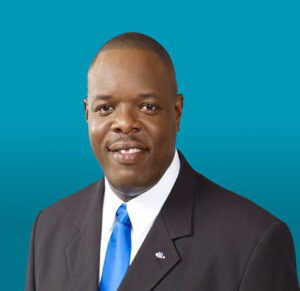By Sue-Ann Wayow
THE payment fee for a grade review by candidates who wrote the Caribbean Examinations Council (CXC) exams in 2020 has been slashed in half for this year.
And if a higher grade is given, the fee will be refunded to the individual. Candidates can also be assured that they will not receive a grade that is lower than the one first received.
These are some of the measures put in place with immediate effect by CXC, the region’s governing examination body following an outcry from various groups including pupils, teachers, parents and education ministries concerning this year’s examination results in two of CXC main exams, the Caribbean Advanced Proficiency Examination (CAPE) and the Caribbean Secondary Education Certificate (CSEC).
The payment fee of US$30 has now been reduced US$15. Those who would have paid the full fee before will be refunded.
The measures were outlined by Dr Wayne Wesley, CXC’s Registrar and Chief Executive Officer during a virtual press conference on Sunday following the draft report submitted by the independent review team.

The team made almost 23 recommendations.
Also with immediate effect is the deadline extension of grade review request. That date has been moved from October 23 to Nov 6.
Wesley said, “The review process will include a remark of the review script. In that regard if the resulting grade remains the same, the candidate will be advised, and if the resulting grade is increased, the candidate will be advised as well as full refund of the review fee. In cases where the review would perhaps indicate a decrease in grade such situations will not occur. In fact the policy where the review will result in a reduced grade, will be discontinued for this session.”
CXC will also be working to expedite the review process.
He said, “Additional capacity will be put in place to ensure that queries can be dispatched immediately and resolve in the shortest possible time. This week, candidates should get an almost immediate response to the query that they have raised. In fact, the backlog should be cleared by this week. Those who are currently seeking to have a direct contact with CXC, the provision will be put in the place by the end of this week, for persons to interact directly with the Caribbean Examinations Council online for a review request.”
Wesley said to date, CXC received 2,353 review requests for CAPE and 2,550 review requests for CSEC which was just over 1% of the number of candidates who wrote the examination overall.

The independent review team led by Professor Hazel Simmons-McDonald, Professor Emerita and retired Pro Vice-Chancellor and Principal of the Open Campus, the University of the West Indies (UWI) consisted of Professor Andrew Downes, retired Pro Vice-Chancellor, Planning and Development, UWI; Professor Francis De Lanoy, President of the University of Curacao; Harrilal Seecharan, retired Chief Education Officer, Ministry of Education, Trinidad and Tobago; and Michael Browne, Minister of Education in Antigua and Barbuda and Chair of the CARICOM Council for Human and Social Development (COHSOD).
The complete report will be made available to the public by Tuesday.
CXC’s chairman, Sir Hilary Beckles, in giving his remarks about the draft report said the report indicated that CXC needed to improve on its communication and that CXC needed to undergo an audit review.

He said, “Communications between the various elements of the system could have been more effective. Misunderstandings contributed ultimately to a high measure of anxiety in respect of performance by students, teachers, parents and other stakeholders. The public outcry primarily from these stakeholders originates largely in the notion of expected performance outcomes where predictions were removed sometimes at variants with performance.”
“There were sometimes technical challenges in the examination’s communications between the CXC and some schools. In some instances, CXC could have responded to these concerns from parents and students with greater alacrity notwithstanding the logistical and other technical challenges associated with the Covid-19 pandemic. The fundamentals at the CXC are sound but that the relationships within the system must now be made more efficient,” Beckles said.
The main challenge for candidates was the issue of ungraded subject areas.

Wesley said, “On the issue of ungraded, it is an indication that some or part of the SBA (School-Based Assessment) or submission of information regarding the SBA would have outstanding and as a result the students would have been awarded ungraded. In those circumstances where the information would have been insufficient, we would have been in contact with the respective institutions to ensure that that information is provided and processed.”
He emphasised, “The reason for ungraded is always in the case of insufficient information being provided for the candidate to be awarded a grade.”
Beckles said that communication process between schools and CXC was one of the areas of concern.
Wesley added that across the region, there were several reports of ungraded subject areas and that the final mark given by teachers to pupils for the SBA would not necessarily be the final mark awarded by CXC for the SBAs.
Beckles said CXC empathised greatly with teachers and pupils stating that digital challenges during the Covid-19 pandemic could have contributed to the lack of information received by CXC as many parts of the Caribbean region still do not have full access to internet services.
Of utter importance would be getting the grades finalised for pupils who are advancing to tertiary level institutions, Beckles said.
Stating that “There is no perfection under the sky,” Beckles said the Covid-19 pandemic was forcing CXC to act on measures the organisation would have wanted to for quite some time but for various reasons kept delaying them and a result, CXC’s strategies will be much improved based on the responses to such matters.
“This current crisis must not be wasted,” he said.
And Wesley added, “The examination next year can take a particular shape that we are not yet aware of.”
![]()










